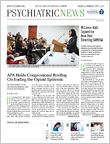Antidepressants can be effective in managing acute symptoms of depression, but many patients who respond face the risk that their depressive symptoms will return at various stages throughout life.
One way to reduce the risk of relapse is to prescribe maintenance antidepressant therapy, but exactly how continued or discontinued medications affect patterns of relapse is not fully understood.
A study in the March issue of Lancet Psychiatry suggests that while maintenance antidepressant therapy reduces the risk of relapse, the protective effect of the therapy alone may be modest. Patients taking active medication were only 13 percent less likely to be classified as experiencing relapse than those taking placebo.
“SRI [serotonin reuptake inhibitor] treatment by itself leaves many patients at risk, and specific strategies for prevention of relapse should be more widely implemented in depression treatment,” Ralitza Gueorguieva, Ph.D., director of biostatistics in psychiatry at Yale University, and colleagues wrote.
Gueorguieva together with Yale colleagues John Krystal, M.D., chair of the Department of Psychiatry at Yale University School of Medicine, and psychology graduate student Adam Chekroud analyzed data collected from nearly 1,500 patients with major depressive disorder who participated in one of four large randomized, controlled discontinuation trials of fluoxetine or duloxetine versus placebo.
Specifically, the researchers were interested in the changes in depression symptoms (scores on the Hamilton Depression Rating Scale, HAM-D) in patients taking the antidepressants or placebo over the course of 26 weeks. Using statistical modeling tools, three response trajectories emerged.
Two trajectories, which constituted most patients, demonstrated a sustained clinical response over 26 weeks, with low HAM-D scores, though one had slightly more score variation from week to week. The third trajectory of increasing depression scores was the relapse trajectory, in which HAM-D scores rose sharply in the first few weeks.
These three response trajectories were evident in both the treatment and placebo groups, and the relative changes in HAM-D scores over time were similar for antidepressant and placebo. A total of 46 percent of patients treated with placebo and 33 percent of patients treated with active medication followed a relapse trajectory.
Waguih IsHak, M.D., a clinical professor of psychiatry at David Geffen School of Medicine at the University of California, Los Angeles, noted that while he does not find the results surprising, there are several methodological issues that might explain some of the reasons the relapse rates in the antidepressant and placebo groups were so similar.
For example, the trials included patients with first-onset depression as well as others with multiple previous episodes—a group that tends to have higher rates of relapse. Additionally, IsHak noted that most patients in the two duloxetine trials were taking only 60 mg duloxetine daily, which might lead to less pronounced effects on symptoms.
In a study published in 2015 in Psychiatry Research, IsHak explored the relapse protection of antidepressants and found similarly striking results.
He and his colleagues tracked the outcomes of 387 patients at a community clinic who were taking one of four SSRIs —fluoxetine, escitalopram, sertraline, or paroxetine—for an average of three years. Some patients were also participating in cognitive-behavioral therapy (CBT). During the study, about three-quarters of the clinic patients experienced a relapse of major depression (about 80 percent of those taking medication alone and 60 percent of those with concomitant CBT).
IsHak acknowledged limitations of his study, which was not conducted in a controlled setting, and the current study, which was a post-hoc analysis. “Still, as we get more and more data suggesting that long-term antidepressant use has limited benefits, the argument that maintenance therapy should be a standard of care gets harder to make,” he said.
Gueorguieva and her colleagues said they believe their findings do support the continued use of antidepressants to prevent relapse, but patients and providers should be aware that the protective effects may be modest. The researchers noted that additional strategies for relapse prevention are needed.
In that regard, the similar trajectories of depression relapse seen in patients taking antidepressants or placebo could help guide future strategies. “Differences in the quality of response—for example, one group in a study gets better while the other gets worse—tend to suggest that fundamentally different processes are involved when you add medication,” Krystal said. “Differences solely in the quantity of response—both groups get better, but to different degrees—suggest that similar biological processes are at play in these two study groups.”
In the case of depression relapse, he thinks the similar trajectories support the idea that antidepressants might work by enhancing a person’s resilience, that is, the body’s natural ability to cope with stress and adversity.
The study was funded by multiple grants from the National Institutes of Health as well as the U.S. Department of Veterans Affairs Alcohol Research Center and National Center for Post-Traumatic Stress Disorder. ■
An abstract of “Trajectories of Relapse in Randomised, Placebo-Controlled Trials of Treatment Discontinuation in Major Depressive Disorder: an Individual Patient-Level Data Meta-Analysis” can be accessed
here. An abstract of “Prophylactic Efficacy of Fluoxetine, Escitalopram, Sertraline, Paroxetine, and Concomitant Psychotherapy in Major Depressive Disorder: Outcome After Long-Term Follow-Up” is available
here.
